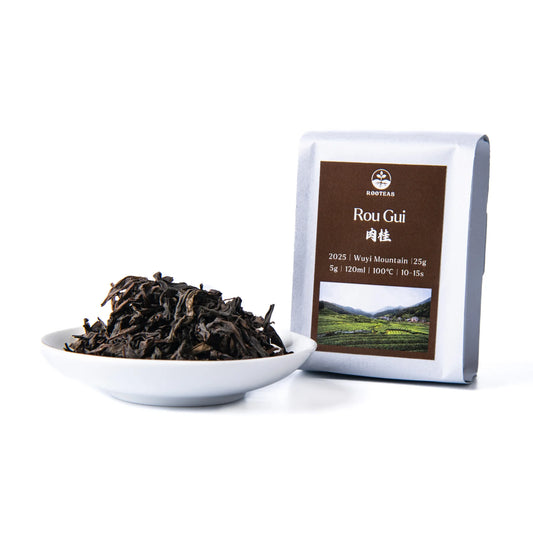

Frequently Asked Questions
If you’re a beginner, we definitely recommend our Go-to Tea Sampler Box. It includes 8 different types of high-quality teas, allowing you to discover your favorite tea in the most affordable way.
For finest taste, tea should be stored in a place that is cool and dry.
Rock tea is best enjoyed within a 3-year period.
Black tea is best enjoyed within a 2-year period.
Green tea and Oolong tea are best enjoyed within a 2-year period.
White tea is an exception. Its internal compounds evolve over time, enhancing its fragrance and creating a deeper, mellower taste. Therefore, it does not have a specific optimal drinking period.
All packages are shipped from China. Please kindly note that our teas are prepared at our warehouse in Fujian, which usually takes no more than 72 hours. Once ready, package will be sent to an international shipping company in Shenzhen, then shipped to the destination country. International shipping typically takes 14-20 days.
If you run into issues while paying with PayPal, like the page getting stuck on loading, it’s usually due to a poor network connection. You can try switching to a different network or using another device. Alternatively, you can also try paying with a credit card instead.
What are the “roots” of Rooteas?

Family Tea-making Skills
Our elders have spent their lives making
tea in the Wuyi Mountains. Now, we want to share their craft with more people, so this tradition doesn't fade away with time.

Family Tea Farms
Every leaf comes from our own and our
friends' family tea farms, places blessed with the perfect mountains, streams, and soil for growing tea. This pure, natural home gives you the truest taste of nature.

Transparency for Every Leaf
We share our teas with absolute transparency. We want to share the teas we craft, as well as the teas we drink daily. We provide full details on how we make and source them. Hope we can become your trusted tea partner.
- Name: Rou Gui / Cinnamon - 肉桂
- Type: Wuyi Rock Oolong Tea
- Origin: Wuyi Mountain, Fujian
- Harvest Time: Spring, 2025
- Roast Level: Medium-heavy
- Producer: Xiao Family
- Tasting note: Baked cinnamon, Light spiced notes, Fruity notes of apricot or peach, Chocolate & Caramel, Rich minerality
Rou Gui rock tea shares the general look of northern Fujian Oolongs but has its own character. The leaves are neatly rolled, brown in color, shiny and rich-looking. When dry, it smells noticeably fragrant. After brewing it releases a distinctive and delicate cinnamon aroma which stays in the air for an extended period. The flavor offers a rich sweetness while the bright orange-yellow liquid appears clear and visually appealing. It feels smooth and satisfying to drink. Besides, the lingering fruity sweetness can make you feel like you're strolling through an orchard.
Everything about Rou Gui Rock Oolong
25g (five 5g servings) - 8 to 10 infusions each
50g (ten 5g servings) - 8 to 10 infusions each
120ml water 100℃/212℉, 10-15 seconds, for 1 infusion




